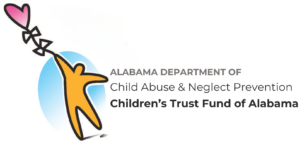Marked by persistent patterns of inattention, hyperactivity, and impulsivity, ADHD can significantly disrupt daily life from childhood into adulthood. Unfortunately, one of the far-reaching effects of ADHD is the increased risk of substance misuse and addiction–particularly at a young age. According to the Child Mind Institute, kids with ADHD are two to three times more likely to misuse substances than kids without the condition.[1]
What is Attention Deficit Hyperactivity Disorder (ADHD)?
Attention Deficit Hyperactivity Disorder (ADHD) is a neurodevelopmental disorder that primarily affects children and can continue into adulthood. It’s characterized by a persistent pattern of inattention, hyperactivity, and impulsivity that can interfere with a person’s daily functioning and quality of life. Individuals with ADHD may struggle with tasks that require sustained attention, organization, and self-control.
People with ADHD may display inattentive, hyperactive, and/or impulsive symptoms.
Inattention Symptoms:
- Fails to give close attention to details or makes careless mistakes
- Difficulty sustaining attention in tasks or play activities
- Does not seem to listen when spoken to directly
- Struggles to follow through on instructions or complete tasks
- Has difficulty organizing tasks and activities
- Avoids or dislikes tasks requiring sustained mental effort
- Frequently loses items necessary for tasks and activities
- Easily distracted
- Forgetful in daily activities
Hyperactivity Symptoms:
- Fidgets or taps hands or feet
- Cannot remain seated when expected to
- Runs about or climbs excessively in inappropriate situations
- Unable to play or engage in activities quietly
- Often “on the go” or unable to relax
- Talks excessively
- Blurts out answers before questions have been completed
- Has difficulty waiting their turn
- Interrupts or intrudes on others’ conversations or games
Impulsivity Symptoms:
- Often blurts out answers before questions are finished
- Has difficulty waiting for their turn
- Interrupts or intrudes on others’ conversations or games
How Many Children and Teens Have ADHD?
Data from the CDC shows that approximately 9.4% of U.S. children between the ages of 2 and 17 have been diagnosed with ADHD. 80-85% of those who are diagnosed continue having symptoms into their adolescent years, and 60% continue struggling with ADHD into adulthood.[2] This translates to 2.4 million children ages 6 to 11 and 3.3 million children ages 12 to 17.
Diagnosing ADHD in Young Boys vs Girls
Young boys are nearly twice as likely to be diagnosed with ADHD than girls, however, the Children and Adults with Attention-Deficit/Hyperactivity Disorder (CHADD) report that there is a gender gap when it comes to the diagnosis and treatment of girls with ADHD. Girls with ADHD often go undiagnosed until adulthood and are left to suffer in silence.[3]
While boys tend to display more disruptive symptoms such as hyperactivity and impulsivity, girls are more likely to display inattentive symptoms, such as problems with organization and paying attention. Part of why boys are diagnosed at an earlier age is because their symptoms are noticed more easily. Girls, on the other hand, have their symptoms regularly mistaken for anxiety and depression. They may also see their symptoms fluctuate due to hormonal changes.[3]
Receiving an early ADHD diagnosis is vital in promoting success in school and beyond. Unfortunately, for many young girls, receiving an ADHD diagnosis is an uphill battle, and girls with ADHD tend to have more academic problems, aggressive behaviors, depression, and substance-related problems than their neurotypical peers.
Additionally, studies have shown that teenage girls with ADHD are more likely to engage in self-harm, develop an eating disorder, experience suicidal thoughts, and have unplanned pregnancies than girls without ADHD.[4]
Does ADHD Increase the Risk for Substance Misuse?
Like depression, anxiety, and other mental health conditions, ADHD can increase the risk for substance misuse and addiction. Teenagers with ADHD are more likely than those without to misuse drugs or alcohol. Approximately 15% of adolescents and young adults with ADHD also have a substance use disorder.[5] The most common drugs used by young people with ADHD are marijuana, alcohol, and nicotine.
There are several reasons why ADHD may increase the risk of youth substance misuse. The first is self-medication. In an attempt to find relief from untreated ADHD symptoms like racing thoughts, hyperactivity, or poor focus individuals may begin using drugs or alcohol to feel calmer or focus better.
In young people, self-medication with drugs and alcohol is particularly dangerous because their brains are still forming. As a result, they are more sensitive to drugs and alcohol, which can cause them to get addicted faster.
Additionally, untreated ADHD symptoms can lead to significant troubles at school. Students may have trouble focusing, get in trouble in class for disruptive behaviors, forget items they need, lose their homework, and have challenges in their social lives. These school troubles can lead to stress, low self-esteem, and even the temptation to use drugs or alcohol.
Genetics, impulsivity, and poor judgment are also thought to play a role in substance misuse among young people with ADHD.
The Dopamine Hypothesis
Another theory that some researchers believe may contribute to substance misuse among young people with ADHD is the dopamine hypothesis of ADHD. This theory suggests a link between low levels of the neurotransmitter dopamine in the forebrain and the challenges associated with executive functions, particularly attention and impulse control.
In other words, when dopamine levels are insufficient, it can lead to difficulties in focusing attention and regulating impulses, which are hallmark symptoms of ADHD. Notably, substances like alcohol have the unique ability to release dopamine into the brain, so they can satisfy the dopamine imbalance that is believed to contribute to the challenges faced by individuals with ADHD. As a result, similar to self-medication, individuals with ADHD might unconsciously seek substances that temporarily alleviate their ADHD-related challenges.
Early Diagnosis and Treatment is Key
While managing ADHD can be challenging, early diagnosis, appropriate treatment, and a supportive environment can help individuals with ADHD lead fulfilling lives and avoid a substance use disorder. If you suspect that you or someone you know may have ADHD, seeking professional evaluation and guidance is a crucial first step toward living life to your full potential.









